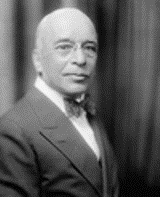
The nonprofit Kaiser Family Foundation has just announced findings that will surprise no one: companies that provide their employees with health care coverage are increasingly passing higher premium costs on to their workers. Over the past five years, while wages have increased by only 18%, contributions to health care premiums have jumped 47%, leaving each one paying nearly $4,000 for a year’s worth of family coverage.
But running counter to that unhappy turn of events is a truly surprising mini-trend: The return of what was once called “welfare capitalism,” albeit in an inchoate fashion. My analysis of that trend is described in an op-ed piece in today’s Boston Globe.
In short, many employers are providing subsidies and other forms of aid to help workers with housing costs. Over 700 Chicago-area companies now offer such assistance, as do such outfits as Silicon-Valley-based Applied Materials and, in Washington, CVS Caremark. Corporate support for education has been a trend for years, but it may have even increased during the current recession.
Adding to the parallel with the earlier period of “welfare capitalism” is the development of what we might call substitute unionism. So-called “employee-representation plans,” or company unions created by the boss to subvert union-organizing drives, were outlawed under the 1935 National Labor Relations Act. Nevertheless, a great many companies now require mandatory arbitration of employment disputes—and the practice was endorsed by a 1991 U.S. Supreme Court decision. Today, more employees are covered by this form of arbitration than are covered by the grievance procedures of independent unions. I’m not endorsing that development–in fact, it seems to me to subvert the NLRA. But it’s a fact of life, for better or worse.
Edward Filene, a pioneer of welfare capitalism at the turn of the 20th century, would be pleased to see so much of his program being brought back to life.
